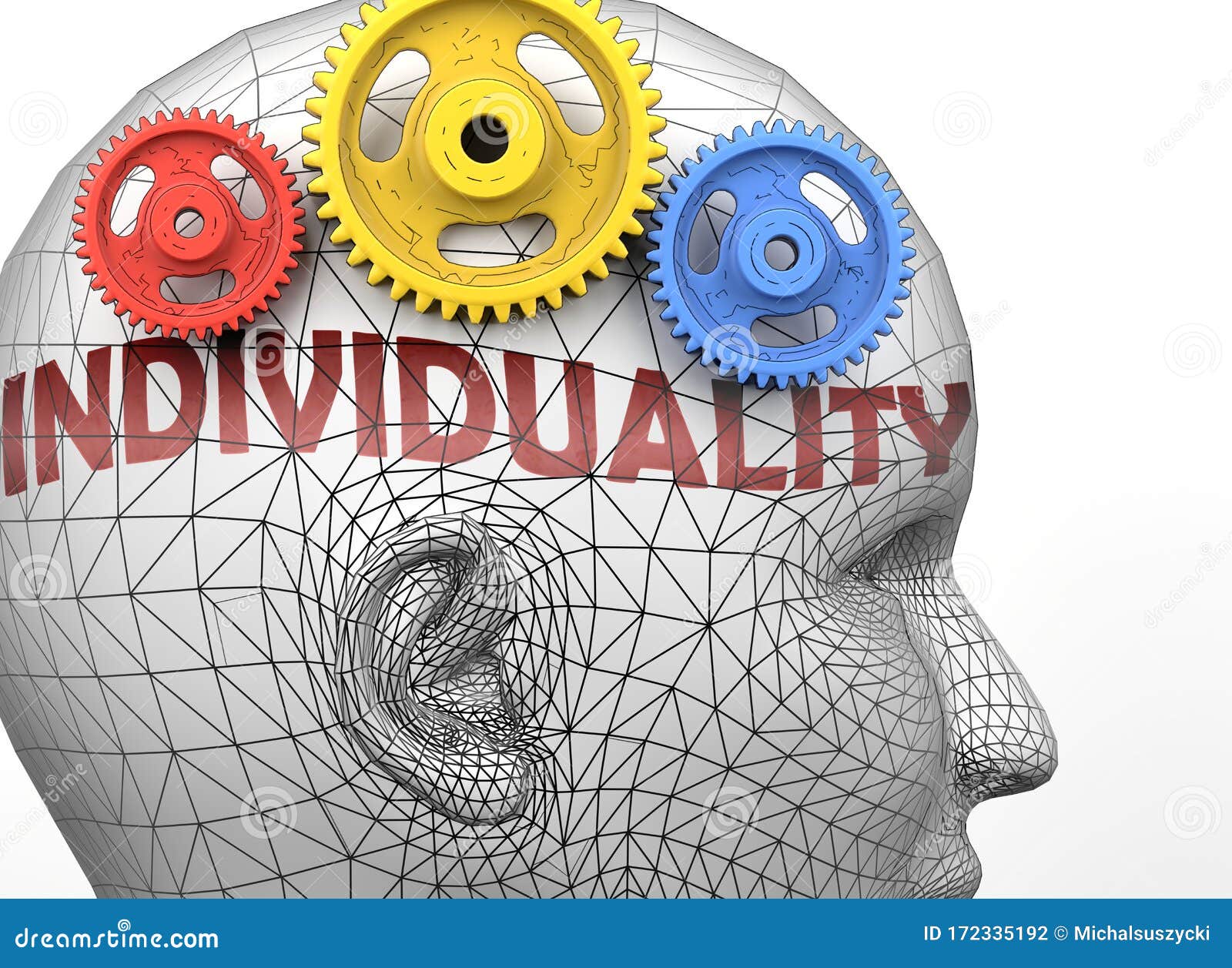Have you ever felt that pull between wanting to be your own person and also wanting to fit in with everyone else? It's a feeling many of us know quite well, actually. This ongoing dance between being unique and being part of a group is something that shapes our lives in big ways. It touches how we think, how we act, and even what we choose to wear, for example.
This push and pull, between standing out and blending in, is a really interesting part of what makes us human. We all have a deep wish to show who we truly are, but there's also that natural desire to connect with others and feel like we belong. It can be a bit of a tricky path to walk, can't it?
So, this piece will look closely at what it means to be an individual, what it means to conform, and how these two big ideas play out in our everyday lives. We'll also chat about ways to find that sweet spot, where you can express your true self while still feeling good about your connections with people, you know?
Table of Contents
- What is Individuality, Anyway?
- What is Conformity?
- The Push and Pull: Finding Your Spot
- Why Being Yourself Matters
- When Fitting In Takes Over
- How to Stand Out and Still Belong
- Common Questions About Being Yourself
What is Individuality, Anyway?
When we talk about individuality, we're really talking about what makes each person truly special. It's that total character that belongs only to you, setting you apart from everyone else, you see. My text points out that individuality is about the qualities that make a person or a thing different from others.
It's about those particular traits, or the collection of qualities, that make one person or thing stand out. For humans, this means being a person who is unique, with their own needs, their own goals, and their own rights, too. My text mentions, for instance, that someone might express their individuality through their clothes, which is a pretty common way to show it.
In psychology, individuality looks at what truly makes each person one-of-a-kind. This includes your unique traits, how you act, your thoughts, and your feelings that all together create who you are, actually. It's the state of being a separate person, distinct from everything else, with your own needs, your own goals, and your own desires, as my text clearly says.
So, individuality is the qualities that make somebody or something different from other people or things. It's the aggregate of qualities and characteristics that distinguish one person or thing from others, like choices made to express one's distinct self, or so it goes. It's about being that person who is truly unique from other people, possessing their own needs and goals, which is pretty cool.
What is Conformity?
Now, if individuality is about standing out, then conformity is pretty much about blending in. It's when people change their beliefs, their attitudes, or their behaviors to match those of a group, or maybe to match a social norm, you know? It's like going along with what most other people are doing, perhaps to feel accepted.
This can happen for a few reasons. Sometimes, people conform because they genuinely believe the group is right, which is called informational conformity. Other times, it's about wanting to be liked and accepted by the group, which we call normative conformity. It's a very human desire to belong, after all.
Think about how people dress at a fancy event; most will wear similar formal attire. Or how students might act in a classroom, generally following the rules set by the teacher. These are everyday examples of conformity, where people adjust their actions to fit the expectations of a situation or a group, so to speak.
Conformity isn't always a bad thing, though. It helps societies function smoothly. Imagine if everyone did exactly what they wanted all the time without any regard for others – things would get pretty chaotic, wouldn't they? So, in some respects, it helps us live together in an orderly way.
The Push and Pull: Finding Your Spot
The relationship between individuality and conformity is a constant balancing act, it really is. We live in a world that, on one hand, celebrates uniqueness and personal expression. Yet, on the other hand, it also often rewards fitting in and following the established rules, or so it seems.
This tension is something we face pretty much daily. From the clothes we pick out, to the opinions we share, to the careers we pursue, there's always that little voice asking if we're being true to ourselves or just doing what's expected. It's a bit of a dance, isn't it?
Sometimes, this pull can feel strong, especially when we're younger and trying to figure out where we belong. Peer pressure, for instance, is a classic example of how the desire to conform can challenge our individuality. It makes us think about what we're willing to give up to be part of the crowd, you know?
Finding a good balance means knowing when to stand firm in your unique qualities and when it's okay, or even helpful, to go along with the group. It's not about choosing one over the other completely, but rather about finding a way for both to coexist within your life, which is a pretty cool goal.
Why Being Yourself Matters
Embracing your individuality brings a whole lot of good things into your life, actually. When you feel free to express your true self, you often feel more authentic and happier overall. It's like a weight lifts when you don't have to pretend to be someone you're not, you know?
One big benefit is stronger mental well-being. People who feel comfortable in their own skin tend to have higher self-esteem and feel more confident about their choices. This can lead to less stress and a greater sense of peace, which is pretty important, wouldn't you say?
Your unique perspective also brings fresh ideas and creativity to the world. When everyone thinks and acts the same way, new solutions and innovations are less likely to appear. Individual thought is what pushes progress forward, in some respects. Think about all the great inventions or artistic movements – they usually came from someone who dared to be different.
Being yourself also helps you build more genuine connections with others. When you show your true colors, you attract people who appreciate you for who you really are, not for a version of yourself you've created to fit in. These kinds of friendships and relationships are often much deeper and more rewarding, which is really something special.
It also gives you a strong sense of purpose and direction. When you understand your own needs and goals, as my text mentions, you can make choices that truly align with what you want out of life. This leads to a more fulfilling existence, where you feel like you're truly living your own story, so to speak.
When Fitting In Takes Over
While some conformity is helpful for social order, too much of it can have some real downsides. When people constantly suppress their individuality to fit in, they might lose touch with who they truly are. This can lead to feelings of emptiness or a lack of personal meaning, you know?
One major issue is the stifling of creativity and new ideas. If everyone is too afraid to step outside the box, innovation grinds to a halt. Groups that demand strict conformity often struggle to adapt to new situations or solve complex problems, because diverse viewpoints are missing, which is a pretty big deal.
Excessive conformity can also lead to something called "groupthink." This is where a group makes poor decisions because everyone agrees with each other without critically thinking things through. No one wants to rock the boat, so bad ideas can go unchallenged, actually.
On a personal level, constantly conforming can cause a lot of internal conflict and stress. It's tiring to always be putting on an act or trying to be someone you're not. This can lead to anxiety, sadness, and a general feeling of not being truly happy with yourself, you know, at the end of the day.
It can also make you feel less responsible for your own actions. When you're just following the crowd, it's easy to think that you're not fully accountable for what happens. This can be a dangerous path, especially when groups do things that are not good, or so it seems.
How to Stand Out and Still Belong
So, how do you find that sweet spot where you can celebrate your individuality while still feeling connected to others? It's a question many people ponder, and there are some simple ways to approach it, you know?
First off, get to know yourself better. Spend some time thinking about what you truly care about, what makes you happy, and what your values are. The more you understand your own unique qualities, the easier it becomes to express them, and that's a pretty good start.
Next, pick your battles. Not every situation requires you to make a grand statement of individuality. Sometimes, it's perfectly fine to go along with the group on small things, like what movie to watch or where to eat, if it doesn't compromise your core self, so to speak. Save your energy for the things that truly matter to you.
Look for communities that value authenticity. Seek out groups, friends, or even online spaces where people are encouraged to be themselves. When you're surrounded by acceptance, it's much easier to let your true self shine through, which is really important for your well-being.
Practice expressing your unique thoughts and ideas, even if they're different from the norm. Start small, maybe with a trusted friend or family member. The more you practice, the more comfortable you'll become with sharing your distinct perspective, you know? It's like building a muscle.
Remember that being individual doesn't mean being alone. You can be unique and still be part of a team, a family, or a community. It's about bringing your distinct flavor to the group, making it richer and more interesting, actually. Your individuality can be a gift to those around you.
It's also helpful to recognize that everyone is, in some way, trying to figure this out. The desire for individuality and the need for belonging are universal human experiences. So, when you express your true self, you might just give others the courage to do the same, which is a wonderful thing.
Finally, be kind to yourself through this process. There will be times when you feel unsure or when the pressure to conform feels strong. That's okay. Just keep coming back to what feels right for you, and remember that your unique character is a valuable part of who you are, you see. You can learn more about personal growth on our site, and find ways to strengthen your identity here.
Common Questions About Being Yourself
What is the difference between individuality and conformity?
Individuality is all about what makes you one-of-a-kind, like your special qualities, thoughts, and ways of doing things. Conformity, on the other hand, is when you adjust your actions or beliefs to match what a group or society expects, so you fit in, you know?
Why is individuality important?
Individuality is pretty important because it helps you feel truly authentic and boosts your self-worth. It also brings new ideas and creativity to the world, and it helps you form deeper, more honest connections with people who appreciate you for who you really are, actually.
What are examples of conformity in everyday life?
You see conformity all the time, really. It could be something simple like wearing certain clothes because everyone else in your social group wears them, or following traffic rules, or even waiting in line patiently at the store. It's about going along with common social practices, more or less. To learn more about social influence, you might find this article on conformity helpful.



